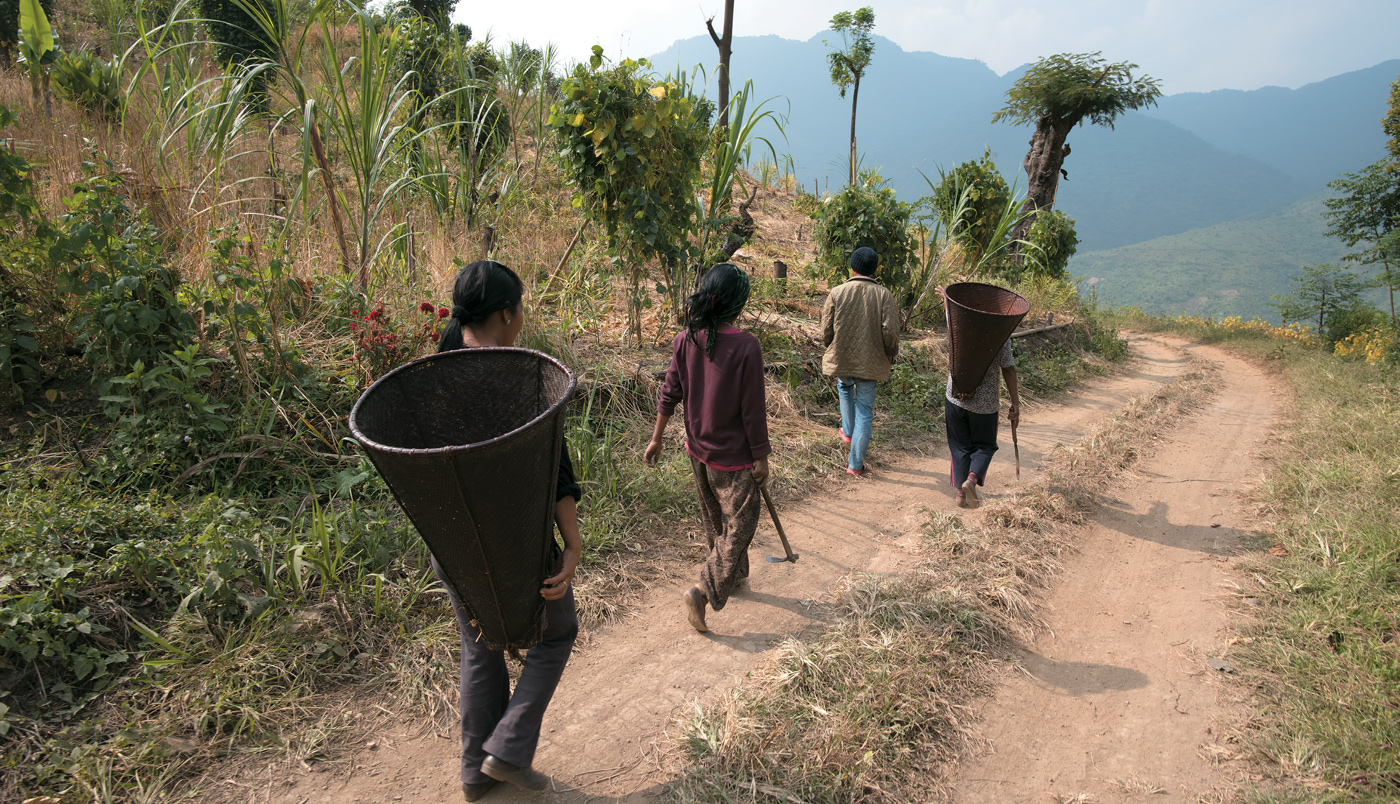
A ONE-STOP SOLUTION FOR INDIAN FARMERS
National Bank for Agriculture and Rural Development (NABARD)
National Bank for Agriculture and Rural Development (NABARD) was formed in 1982 with a vision of bringing prosperity to rural India. It was formed by transferring the agricultural credit functions of RBI and the refinance functions of the erstwhile Agricultural Refinance and Development Corporation (ARDC). The government owned institution aims to promote sustainable and equitable agriculture and rural development through participative financial and non-financial interventions, innovations, technology and institutional development for securing prosperity. Supporting local communities through watershed and WADI initiatives is one of the major steps taken by NABARD.The effort of NABARD has been to reach out to people even in the most remote or inaccessible part of the country. Tuensang in Nagaland is possibly the eastern most point of the country. Bordering Myanmar, the district of Tuensang is one of those remote places where the development has not reached. Poorly constructed roads, which are even more terribly managed, have made the journey to the largest district of the state, a treacherous one. In such a neglected, even inaccessible area, NABARD has been able to implement its WADI and System of Rice Intensification (SRI) projects. WADI project, which comes under the Tribal Development Fund, provides financial assistance and technical know-how to the farmers.In Tuensang, collaborating with Eleutheros Christian Society (ECS), the WADI project has focused on development of orange orchard, keeping in line with the project’s policy of identifying the most suitable crop for the specific region. The orange orchards have flourished in eight villages and have about 750 beneficiaries. In addition to this, NABARD has also introduced SRI techniques in and around Hackchung and Longda. It focuses on augmenting a lead crop to tackle food security issues and to enable the formation of self-reliant communities.
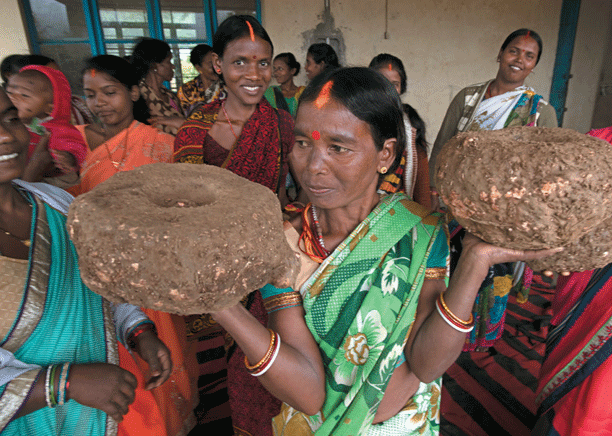
Introduction of new crops such as yam have resulted in additional profit for the farmers
Most traditional farmers are sceptical about modern farming techniques. The story was not different here. To familiarize them with SRI and its benefits, ECS identified ten progressive farmers who were willing to accept the new techniques, and started the SRI project with them. This helped other farmers witness its benefits and gradually join the programme. While the villagers still rely on the traditional ‘slash and burn’ technique of farming or Jhum cultivation, as is locally known, they have been able to accommodate modern techniques such as inter cropping and intensive cropping for a much more financially secure cultivation.
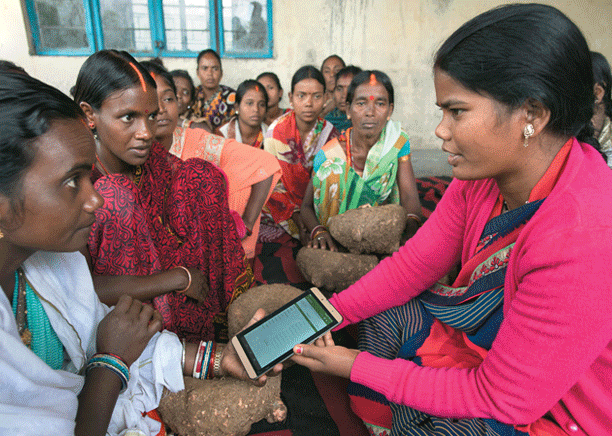
Digitization of SHGs has further smoothened the credit linkage to banks
Introduction of many projects under the Tribal Development Fund (TDF) scheme has
had a compounding effect on the entire Tuensang area.
Healthcare being a critical issue, the people in this region came up with a
unique solution. In arguably the first such instance in the country, the
villagers, ECS, and other funding agencies came together to set up a Public
Healthcare Center (PHC) under the Public Private Partnership format whereby the
doctors and nurses are appointed and paid by the community. The PHC, currently,
has an X-ray machine, an ultrasound machine, a portable
ECG machine, a mini
lab and a full-time pharmacy.
Although not directly involved, NABARD was the first big name to provide support in the area. This grabbed the attention of other funding agencies to Tuensang, which cumulatively led to the creation of PHC, improved the financial status of the villagers and paved way for other developmental activities in the area. ECS has been working with NABARD in executing various projects in and around Tuensang district. As many as 300 women self-help groups (SHG), covering all the blocks in Tuensang, are directly funded by NABARD.
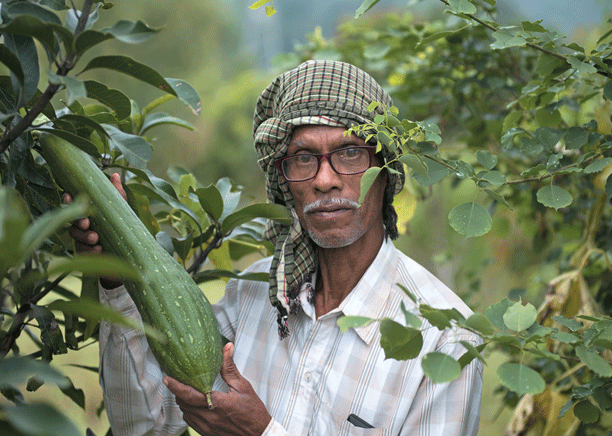
High quality seeds and expert advice has borne rich fruits for countless farmers
In Pathrattu, Jharkand, NABARD in
partnership with Gramin Seva Sangh has a successfully running WADI project,
involving 65 farmers in the area. Here, the project provides saplings of
less water intensive crops like mango and guava. The farmers are also
encouraged to farm in clusters so that irrigation facilities can be supplied
easily, whether through bore wells or tube wells depending on the terrain.
NABARD supported agency identifies the beneficiaries who can profit the most
through the WADI project. These farmers are then asked to plant mango or
guava saplings on their land.
The farmers are also encouraged to plant intercrops such as chilli and peas
for additional income,
which is possible because of the assured irrigation project under the WADI
initiative.
The primary motive of this project is to bestow additional income as well as assured irrigation to small scale tribal farmers so that they can continue agriculture as their livelihood, rather than depending on wages from daily labour. NABARD has helped in uniting the WADI farmers to start a Farmer Producer Organisation (FPO) in an effort to cut the initial costs by procuring seeds and fertilizers in bulk. Similarly, the farmers, through the FPO, are able to sell their produce in larger quantum.
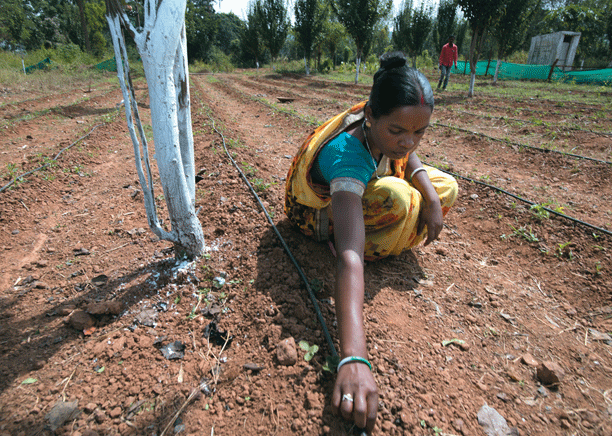
By encouraging group farming, NABARD is able to irrigate multiple farmlands using the most suitable method for the terrain.
NABARD has also pioneered the digitization of SHGs through its Eshakti app. The main objective of the Eshakti project is to bring the SHG members onto a digitised platform which also aids financial inclusion and thereby helping to avail more financial services. The app prioritizes ease of e-book keeping. Regular updates on transactional data are sent to all the members through SMS alerts. Other similar services are extended to the farmers. These services are targeted for easy record keeping of the transactions, which helps while applying for loans.
The details of the SHG and its members stored in the app are shared with bankers, thereby helping in monitoring credit linkages and its recovery. Real-time updates through the app make the process more transparent, increasing trust among the SHG members. In addition, it also makes the members more familiar with the banking procedures. Jyoti Mahila Kalyan Samooh, a SHG, has successfully rotated about Rs 50,000 which has helped the members achieve a stable income.
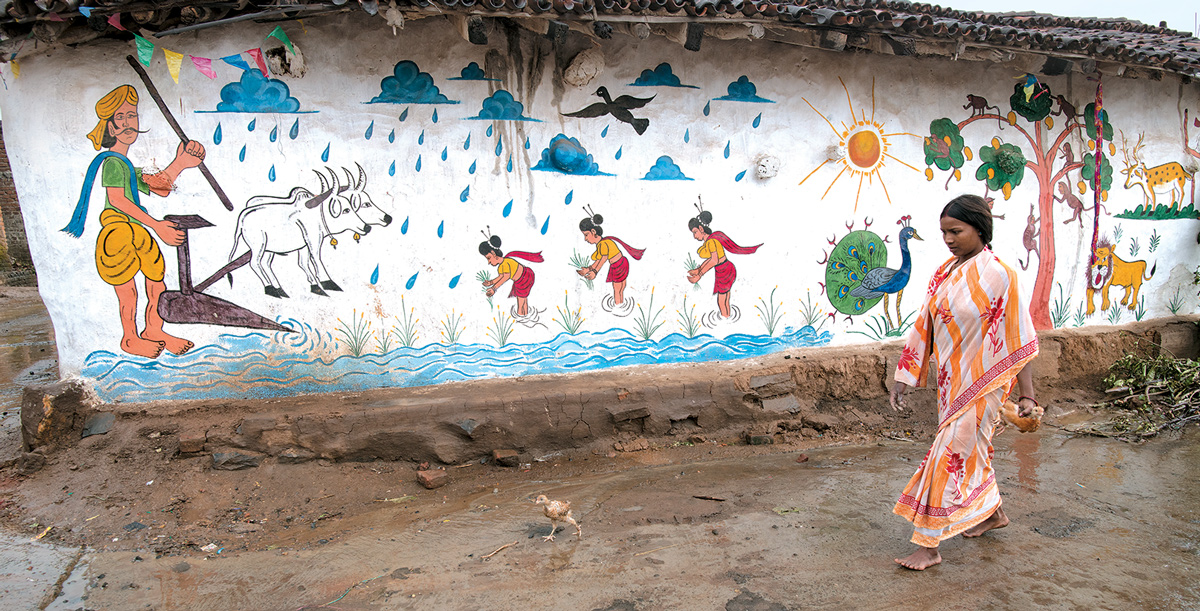
In the Jashpur district of Chhattisgarh, NABARD in collaboration with the Rural Education and Development Society (READS) has achieved considerable success in promoting sustainable agricultural practices through its WADI project. Through READS, the project identifies farmers working in semi-arid regions of the district. They are then provided with mango or peach saplings of a high yielding variety, but requiring very little irrigation. In WADI project, usually one acre of land per farmer is developed. In addition to providing saplings, WADI project also helps to create irrigation facilities for a cluster of land by installing common wells or ponds so that water can be provided easily. Upon providing high yield mango and peach saplings, regular monitoring is done by READS authorities and the farmers are also given technical advice on pruning techniques and other related information. Usually chilli, ginger, tomato and similar crops are used for intercropping wherein they can be planted in between the mango and peach saplings for an additional income.
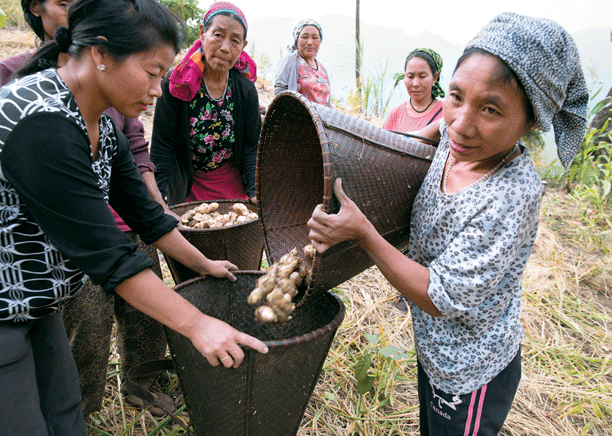
A harvest day in Tuensang,; familiarizing the farmers to SRI and intercropping has increased profits for the villagers.
Implementing the WADI project was an arduous task initially because of the past instances when crafty individuals stole the land from the farmers by illegally making them sign on land deeds and taking all the profits. There have been other instances where people took advantage of illiterate farmers to take loans and left the farmers facing the burden of debt repayment. Hence, winning the trust of farmers took some effort. The farmers who showed interest were taken to WADI projects in other states where they interacted with the farmers. Gradually, seeing others succeed, many farmers started approaching READS and NABARD. Currently, NABARD is working with 2,500 farmers in Jashpur district.
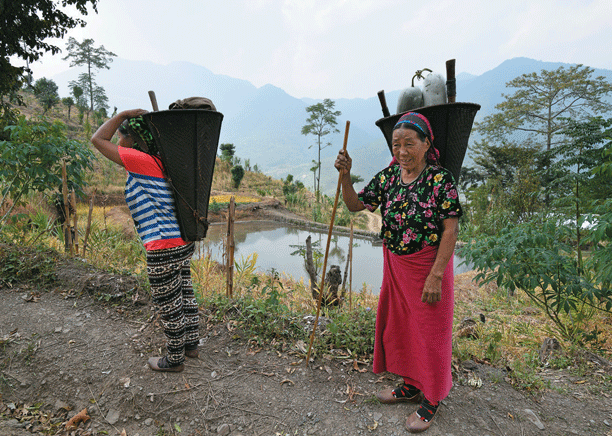
One persistent problem is meddling by the unscrupulous middlemen who approach farmers and buy their farm produce for pittance. Some instances reported claim that farmers have been forced to sell mangoes for a paltry Rs 300 to Rs 500 per quintal. What is worse is that many a times farmers don’t even get paid these paltry amounts. Similar kinds of exploitation are faced by famers when they went to buy fertilizers and other inputs. In an effort to mitigate these practices, NABARD initiated efforts to promote FPO in this region. It has been successful in making the farmers realize their collective power.
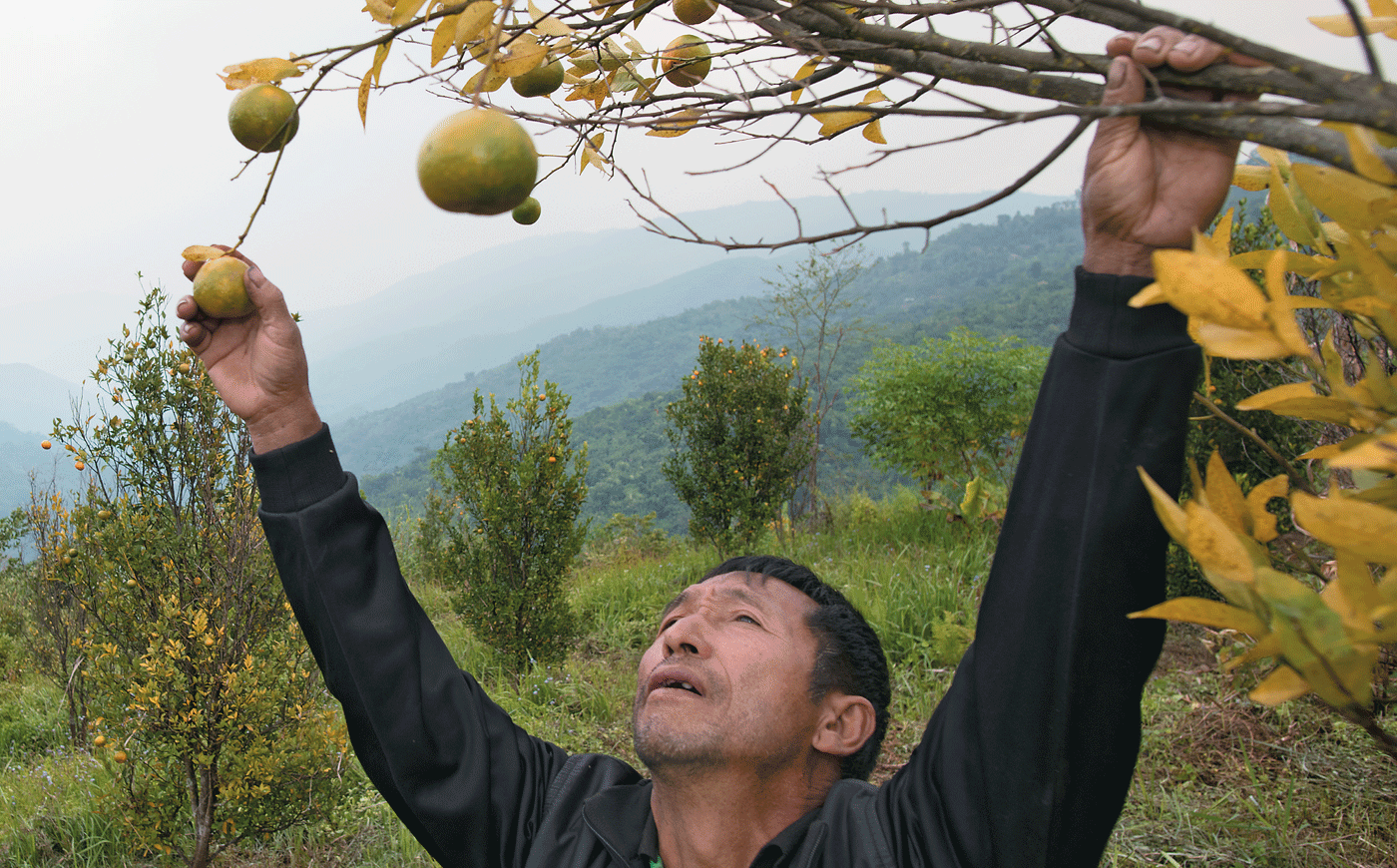
An alternative income to the main crop is facilitated through the Wadi projects in Hakchung, Nagaland.
The FPOs are able to help farmers buy seeds for 40 percent less price than before. Similarly, they are able to get a better price for produces in bigger markets. The FPOs have helped to bring about drastic change in the earnings, as they now earn profits in lakhs as compared to Rs 3,000 to Rs 5,000 while trading with the middlemen. This particular FPO initially had started with 25 members but now has expanded to 1,000 members consisting mainly of the WADI farmers. Similarly, a decision was taken, collectively, to contribute a fixed amount to the organization. This money acts as a fund that can be used as loan for the farmers in need, or for the expenditures of the FPO.
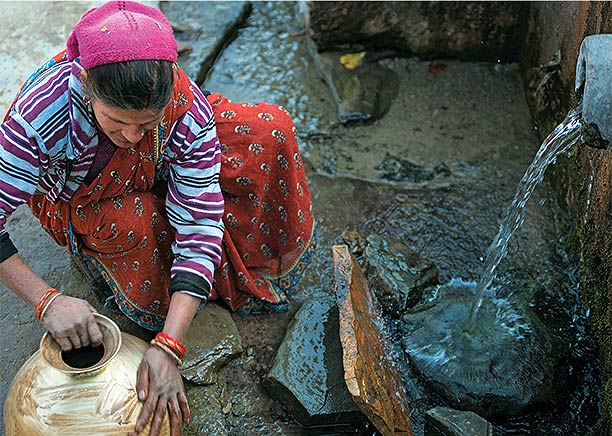
The intricate system of water management has increased the flow of this spring from 7 litre per second to 30 litre per second.
WADI projects have positively impacted villages of Akhrikhana, Kopa and Sindwar. Here, instead of farmers approaching the government officials, they reached out to the farmers. Now many WADI farmers are benefitting from the solar water project of the state government, the Vermi compost yojana and other state -run schemes. Many of these farmers, before being linked with the WADI project, worked as daily wage labourers as they could not sustain themselves from their agricultural earnings. The same farmers now employ three to four labourers in their own fields.
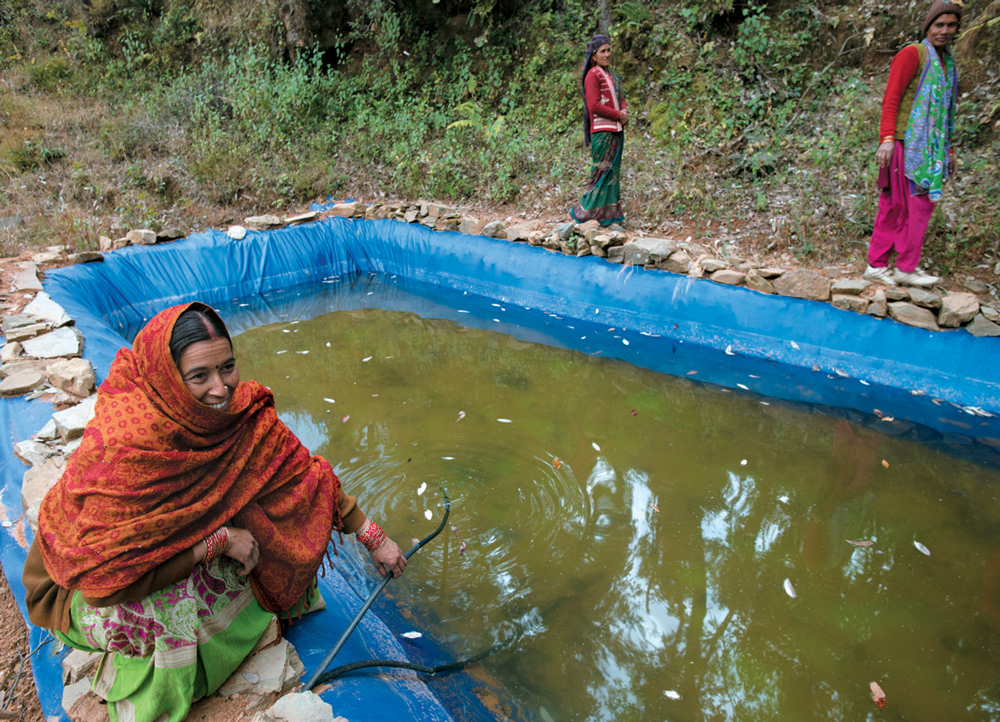
In Pokhri village, Uttrakhand, a series of stone gabions, diversion drains and water pits haveincreased water security.
“We are simple people; but these days even big government officials and other educated people are coming to us, to learn about us and our farms,” says Bahatar Ram, one of the WADI farmers, who had attended the 2010 World Food Expo. “I got into an airplane by selling mangoes,” he jokes.NABARD also has a dedicated Watershed Development Fund that supports projects focusing on water scarcity issues. One such project is in Uttarakhand’s Pauri region. Through the Society for Economics and Social Studies, NABARD has been able to construct 3,000 structures including check dams, diversion drains and pipelines to increase the filtration of the water into the ground and thereby increasing the groundwater level of the area.




